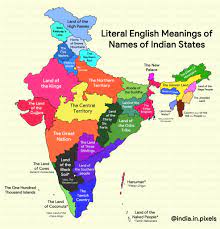
State
State
A state is a political entity characterized by four fundamental components:
1. Population
2. Territory
3. Government
4. Sovereignty
A state may encompass one or more nations (as exemplified by historical entities like the Roman Empire and Austria-Hungary), and a nation can be present within or across the borders of one or more states, as observed in the early modern principalities of Germany.
Distinction between Nation and State:
A nation represents a cultural, social, and linguistic community of people who share a common history, traditions, and beliefs. Nations are typically defined by a shared sense of identity and culture and can exist both within and beyond the boundaries of a state. For instance, the Kurds are a nation without a state since they do not possess a country of their own.
In contrast, a state is a political entity that exercises sovereignty over a defined territory and population. A state can be an independent country with its own government, or it can be a constituent part of a larger nation, such as a state within the United States of America. States possess the authority to create and enforce laws, collect taxes, and engage in international relations.
"State" in the Indian Context:
Article 12 of the Indian Constitution provides the definition of "State" for the application of Part III (Fundamental Rights). It encompasses various entities, including:
1. Legislative and Executive Organs of the Union Government:
- Indian Government
- Indian Parliament (Lok Sabha, Rajya Sabha)
2. Legislative and Executive Organs of the State Government:
- State Governments
- State Legislature (Legislative Assembly, Legislative Council)
3. Local Authorities:
- Municipalities (Municipal Corporations, Nagar Palika, Nagar Panchayats)
- Panchayats (Zila Panchayats, Mandal Panchayats, Gram Panchayats)
- District Boards
- Improvement Trusts, etc.
4. Statutory Authorities:
- National Human Rights Commission
- National Commission for Women
- National Law Commission
- National Green Tribunal
- National Consumer Disputes Redressal Commission
- Armed Forces Tribunal
5. Non-Statutory Authorities:
- Central Bureau of Investigation
- Central Vigilance Commission
- Lokpal and Lokayuktas
According to the Supreme Court, even private bodies or agencies that function as instruments of the State fall within the scope of the term 'State' under Article 12.
Key Judgments:
- Ujjain Bai v. State of Uttar Pradesh: This case highlighted the criteria that a body must meet to be considered a state, including the level of governmental control in terms of authority, functionality, and economic dependency.
- R.D Shetty v. Airport Authority of India: The Supreme Court established the criteria for categorizing a body as a "State," including factors like government ownership of the entire share capital, absolute control by the government, the presence of authority, and public service delivery.
- Rupa Ashok Hurra v. Ashok Hurra Case: The Supreme Court reaffirmed that Fundamental Rights cannot be violated through judicial proceedings and clarified that superior courts of justice are not covered by Article 12.
- Sanjaya Bahel v. Union of India & Others case: In May 2019, the Delhi High Court declared that the United Nations Organization (UNO) does not qualify as a "State" as defined under Article 12 of the Indian Constitution.